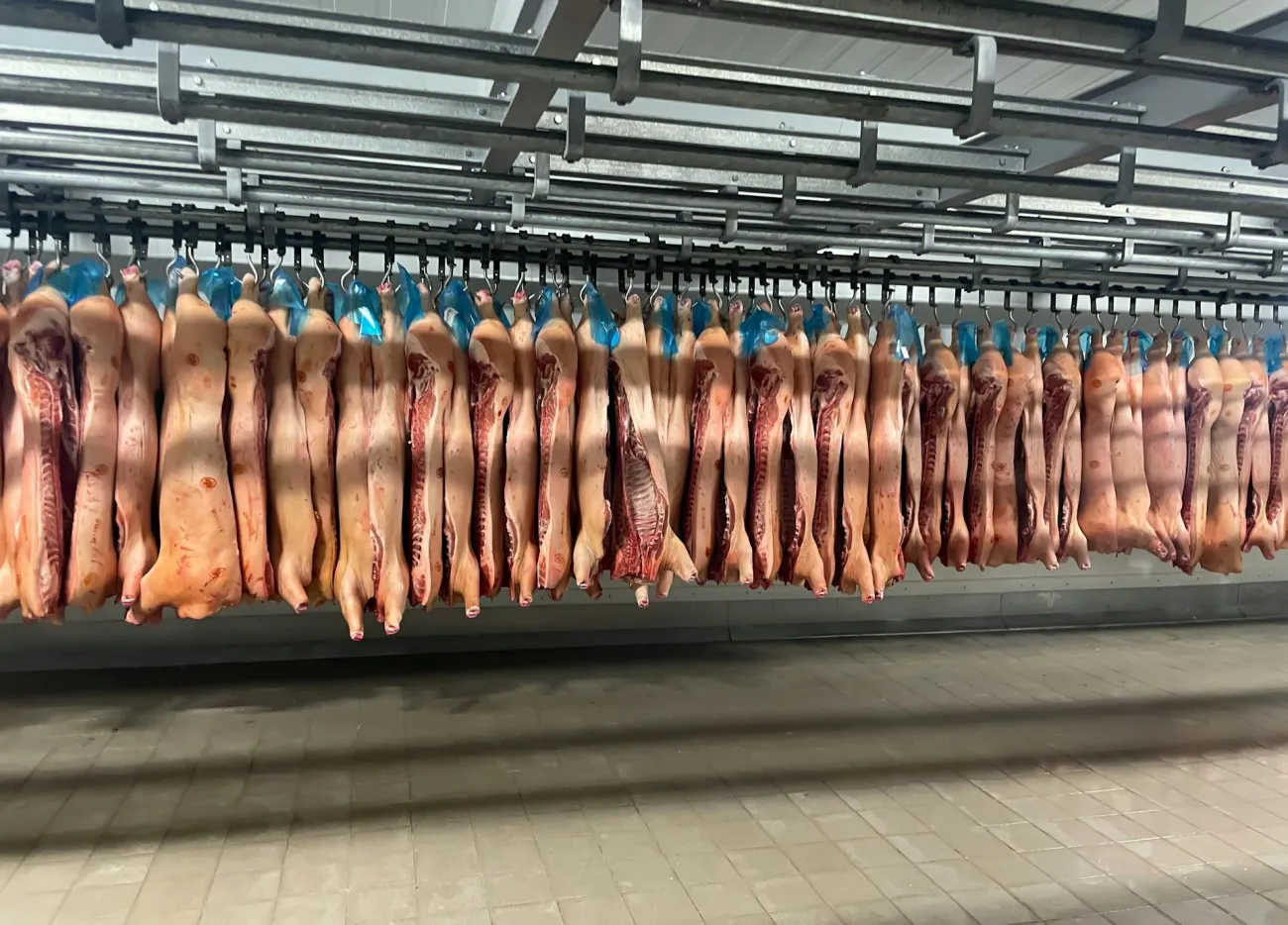A series of review papers on the health effects of consumption of red and processed meat has been published in the Annals of Internal Medicine. Based on the reviews, the Nutritional Recommendations (NutriRECS) Consortium (an independent group including several of the authors of the review papers; members of the panel had no “financial or intellectual” conflicts of interest during the past three years) recommends that adults should continue to eat current levels of both red meat and processed meat.

NutriRECS states that its recommendations to continue eating current levels of red and processed meat are “weak” and based on “low-certainty evidence”. Its recommendations are based on health and do not consider environmental impacts or animal welfare. Furthermore, it argues that current dietary guidelines that recommend reducing meat consumption are based on observational studies that provide low to very low evidence of adverse health effects being linked to meat consumption.
In line with previous studies, the reviews found weak evidence that reducing unprocessed red meat consumption by three servings a week could result in a small decrease in the risk of cardiovascular disease, stroke, myocardial infarction, overall lifetime cancer mortality and type 2 diabetes, with no significant change in all-cause mortality and cardiovascular mortality.
Similarly, the reviews found weak evidence that reducing processed meat consumption by three servings a week could result in a small decrease in all-cause mortality, cardiovascular mortality, stroke, myocardial infarction, type 2 diabetes, overall lifetime cancer mortality, prostate cancer mortality, and the incidence of esophageal, colorectal, and breast cancer. Lower processed meat consumption was not associated with significant differences in cardiovascular disease or the incidence or mortality for 12 types of cancer (colorectal, gastric, and pancreatic cancer mortality; overall, endometrial, gastric, hepatic, small intestinal, oral, ovarian, pancreatic, and prostate cancer incidence).
The panels makes its recommendation for adults to continue current levels of red and processed meat consumption based on the following factors:
- The certainty of evidence linking meat consumption to adverse health outcomes is “low to very low”
- Based on what the authors deem to be a realistic reduction in meat consumption of three servings per person per week, the absolute risk reduction is “very small and often trivial absolute risk reduction”
- People are unlikely to be sufficiently motivated to reduce their meat consumption given the very small health benefits reported by this series of papers and the attachment of omnivores to meat-based diets (as reported by one of the review papers, Health-related values and preferences regarding meat consumption: a mixed-methods systematic review)
The paper notes that “Considerations of animal welfare, and particularly of environmental impact, will certainly be important to some individuals; the latter might be of particular importance from a societal perspective.”
A round-up of expert reactions to the series of papers can be found at the UK Science Media Centre: Expert reaction to new papers looking at red and processed meat consumption and health.
Dr Giota Mitrou, Director of Research at World Cancer Research Fund, told the Science Media Centre: “The public could be put at risk if they interpret this new recommendation to mean we can continue eating as much red and processed meat as they like without increasing their risk of cancer. This is not the case. The message people need to hear is that we should be eating no more than three portions of red meat a week and eat little, if any, processed meat.”
Prof Susan Jebb, Professor of Diet and Population Health at the University of Oxford, told the Science Media Centre: “These reviews broadly cover the same evidence previous groups have considered – there is nothing new which has specifically challenged previous evidence of a link between meat consumption and an increased risk of some types of cancer, especially colorectal cancer. It also shows some evidence of an increase in the risk of cardiovascular disease. [...] They note that the quality of evidence is weak – true – it’s very hard to conduct trials which give high quality evidence of causal links. [...] Dietary recommendations are issued for the population as a whole and it seems surprising to me that these researchers conclude we should not caution people about the risks of consuming meat, particularly for those people whose consumption is above the average.”
A rebuttal published by the Harvard TH Chan School of Public Health says “The new guidelines are not justified as they contradict the evidence generated from their own meta-analyses. Among the five published systematic reviews, three meta-analyses basically confirmed previous findings on red meat and negative health effects.”
Further media coverage and reactions include:
- BBC News: Is red meat back on the menu?
- Telegraph (paywall): Is it time to put red meat back on the menu?
- Guardian: Uproar after research claims red meat poses no health risk
- Grist: Is red meat bad for you? Climate change sure is.
Abstract (for Unprocessed Red Meat and Processed Meat Consumption: Dietary Guideline Recommendations From the Nutritional Recommendations (NutriRECS) Consortium)
Description:
Dietary guideline recommendations require consideration of the certainty in the evidence, the magnitude of potential benefits and harms, and explicit consideration of people's values and preferences. A set of recommendations on red meat and processed meat consumption was developed on the basis of 5 de novo systematic reviews that considered all of these issues.
Methods:
The recommendations were developed by using the Nutritional Recommendations (NutriRECS) guideline development process, which includes rigorous systematic review methodology, and GRADE methods to rate the certainty of evidence for each outcome and to move from evidence to recommendations. A panel of 14 members, including 3 community members, from 7 countries voted on the final recommendations. Strict criteria limited the conflicts of interest among panel members. Considerations of environmental impact or animal welfare did not bear on the recommendations. Four systematic reviews addressed the health effects associated with red meat and processed meat consumption, and 1 systematic review addressed people's health-related values and preferences regarding meat consumption.
Recommendations:
The panel suggests that adults continue current unprocessed red meat consumption (weak recommendation, low-certainty evidence). Similarly, the panel suggests adults continue current processed meat consumption (weak recommendation, low-certainty evidence).
Primary Funding Source:
None. (PROSPERO 2017: CRD42017074074; PROSPERO 2018: CRD42018088854)
References
Clinical guidelines:
Johnston, B.C., Zeraatkar, D., Han, M.A., Vernooij, R.W., Valli, C., El Dib, R., Marshall, C., Stover, P.J., Fairweather-Taitt, S., Wójcik, G. and Bhatia, F., 2019. Unprocessed Red Meat and Processed Meat Consumption: Dietary Guideline Recommendations From the Nutritional Recommendations (NutriRECS) Consortium. Annals of Internal Medicine.
Five reviews:
Zeraatkar, D., Johnston, B.C., Bartoszko, J., Cheung, K., Bala, M.M., Valli, C., Rabassa, M., Sit, D., Milio, K., Sadeghirad, B. and Agarwal, A., 2019. Effect of lower versus higher red meat intake on cardiometabolic and cancer outcomes: a systematic review of randomized trials. Annals of Internal Medicine.
Valli, C., Rabassa, M., Johnston, B.C., Kuijpers, R., Prokop-Dorner, A., Zajac, J., Storman, D., Storman, M., Bala, M.M., Solà, I. and Zeraatkar, D., 2019. Health-related values and preferences regarding meat consumption: a mixed-methods systematic review. Annals of Internal Medicine.
Vernooij, R.W., Zeraatkar, D., Han, M.A., El Dib, R., Zworth, M., Milio, K., Sit, D., Lee, Y., Gomaa, H., Valli, C. and Swierz, M.J., 2019. Patterns of red and processed meat consumption and risk for cardiometabolic and cancer outcomes: a systematic review and meta-analysis of cohort studies. Annals of Internal Medicine.
Han, M.A., Zeraatkar, D., Guyatt, G.H., Vernooij, R.W., El Dib, R., Zhang, Y., Algarni, A., Leung, G., Storman, D., Valli, C. and Rabassa, M., 2019. Reduction of red and processed meat intake and cancer mortality and incidence: a systematic review and meta-analysis of cohort studies. Annals of Internal Medicine.
Zeraatkar, D., Han, M.A., Guyatt, G.H., Vernooij, R.W., El Dib, R., Cheung, K., Milio, K., Zworth, M., Bartoszko, J.J., Valli, C. and Rabassa, M., 2019. Red and processed meat consumption and risk for all-cause mortality and cardiometabolic outcomes: a systematic review and meta-analysis of cohort studies. Annals of Internal Medicine.
Editorial:
Carroll, A.E. and Doherty, T.S., 2019. Meat consumption and health: food for thought. Annals of Internal Medicine.
Links to each of the papers and media materials are available here. See also the Foodsource resource What are the nutritional issues around meat and dairy?




Comments (0)